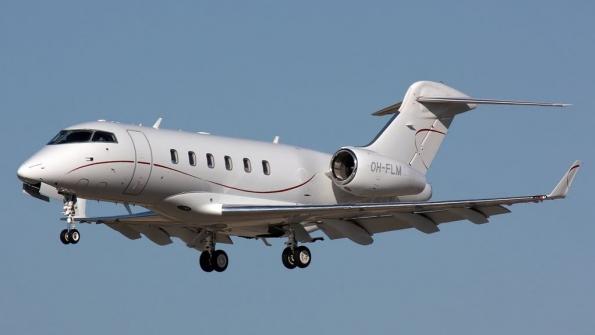
Since March, private aviation has highlighted the inherent advantages it offers people who need to travel but are unwilling to take the risk of exposure to COVID-19 that comes with flying on a commercial airliner.
But how best to identify and address this potential new market?
There are those who argue that, as a premium product, the challenge of the moment is to identify those high-net-worth individuals and businesses that could already afford to use bizjets prior to the pandemic but have not done so thus far. Others maintain that a vast new customer base could be attracted to the sector if it could find a way to reduce the price of its product.
One startup placing its bet on the latter approach is U.S.-based SharedCharter, which seeks to find willing partners to share the cost of private flights. The company launched in October, and its CEO, former aviation publisher and consultant Carl Marbach, believes he can help the sector attract large amounts of new business.
“We’re trying to change the paradigm,” he says. “We can lower the cost of charter to such an extent that we will attract a much larger market. You can think about markets as a pyramid: if you lower the price and move down the pyramid, the area’s much greater. If we halve the price, we should quadruple the market; if we make the price a quarter, we should [enlarge] the market by eight or 16 times.”
Flight sharing is not a new idea. But Marbach argues his execution is unique. SharedCharter is a web-based platform that allows travelers to find other people willing to join together to book private flights within the U.S. and thus reduce the per-seat cost. A user—it could be a broker, an operator, or a passenger—posts their proposed itinerary, and other users with similar requirements in terms of points of origin, destination and date range can find the flight via the search function.
SharedCharter makes its money by charging a small per-seat markup. Marbach gives a hypothetical case of a $20,000 charter being used by four people who each pay $6,000. “That compensates the original broker who gets his commission, and SharedCharter, so everyone’s happy,” he says. “And the four people are ecstatic, because they’ve got a $20,000 flight for $6,000. Everybody wins.”
Clearly, one of private aviation’s advantages amid the pandemic is the assurance that the passenger knows everybody on board. Marbach says his system provides customers with considerable reassurance by facilitating preflight dialogue, and the company will earn its money by brokering the detailed agreements. Someone wishing to join a flight will submit a request via the site; that kicks off a dialogue that Marbach and his team organize between all parties contemplating the charter.
“We would take the message, and say to the host [the designation SharedCharter uses to denote the individual who lists the flight on their system] ‘We’ve found someone who’s interested in your flight: is there anything you’d like to discuss with them?’,” he explains. “We would set up a conference call between SharedCharter and the people sharing the flight, and they would have to agree on the terms for sharing that flight.”
Once two or more people agree to share a flight, should any additional parties request to join, another dialogue would take place. “Every time, the right of refusal belongs to the people who have already agreed to the flight,” Marbach says.
It is early days for the company and too soon to say whether the approach will prove successful for Marbach’s firm, never mind transformative for the sector. But Marbach—who says his company completed two shared flights in its first six days in business and was in the process of completing two more when he spoke with The Weekly of Business Aviation—believes the upsides are considerable for all parties. His number one task right now is convincing everyone that he can save—or make—them all money.
“This is an education process,” he says. “We have to educate the brokers that we’re not competitors —we will be good for them because we increase the size of the market. The operators are going to be happy because their airplanes will be busier. And the fuller the database is, the more efficient, and the better it is for people to use.”





